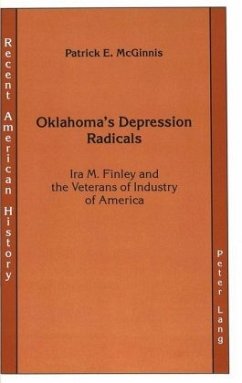The Veterans of Industry of America presented a radical agenda for dealing with the Great Depression in Oklahoma. Its primary organizer and only president was Ira M. Finley, a former Socialist and state legislator. Although poorly funded, the VIA played a major role in campaigning for old age pensions, a graduated land tax, and homestead exemptions. Unusual for Oklahoma political organizations in the thirties, it welcomed black members, and championed the rights of WPA workers through grievance committees. Composed largely of unemployed and semi-employed farmers and laborers, the organization peaked early in 1940 and faded rapidly during World War II.
This book presents a cogent narrative and analysis of the rise and fall of the VIA.
This book presents a cogent narrative and analysis of the rise and fall of the VIA.
